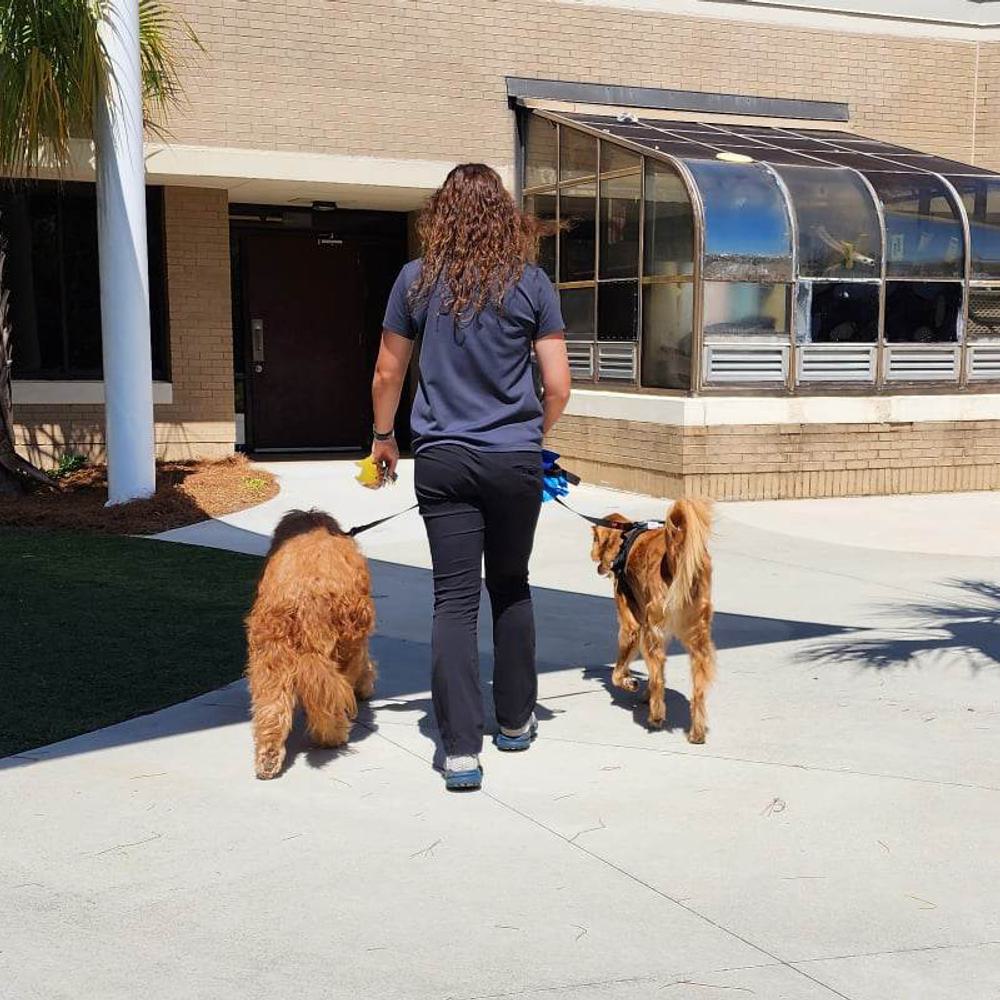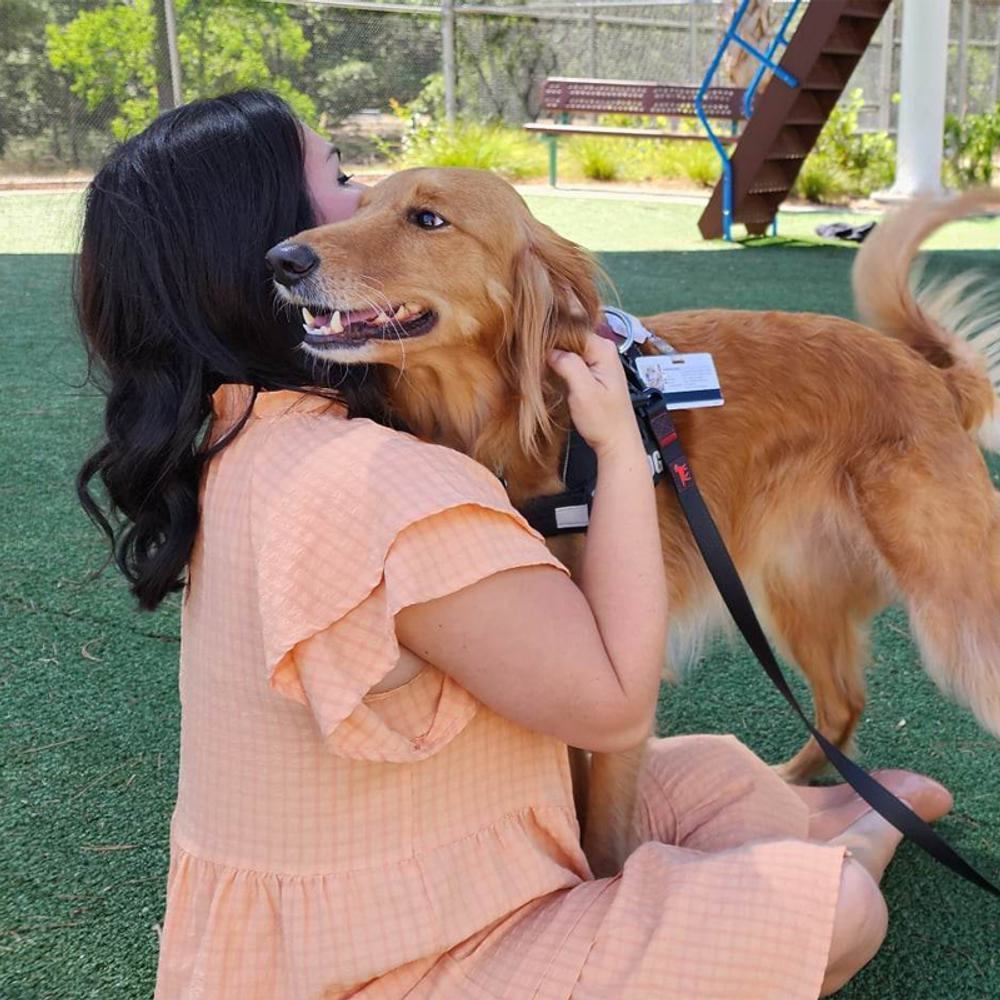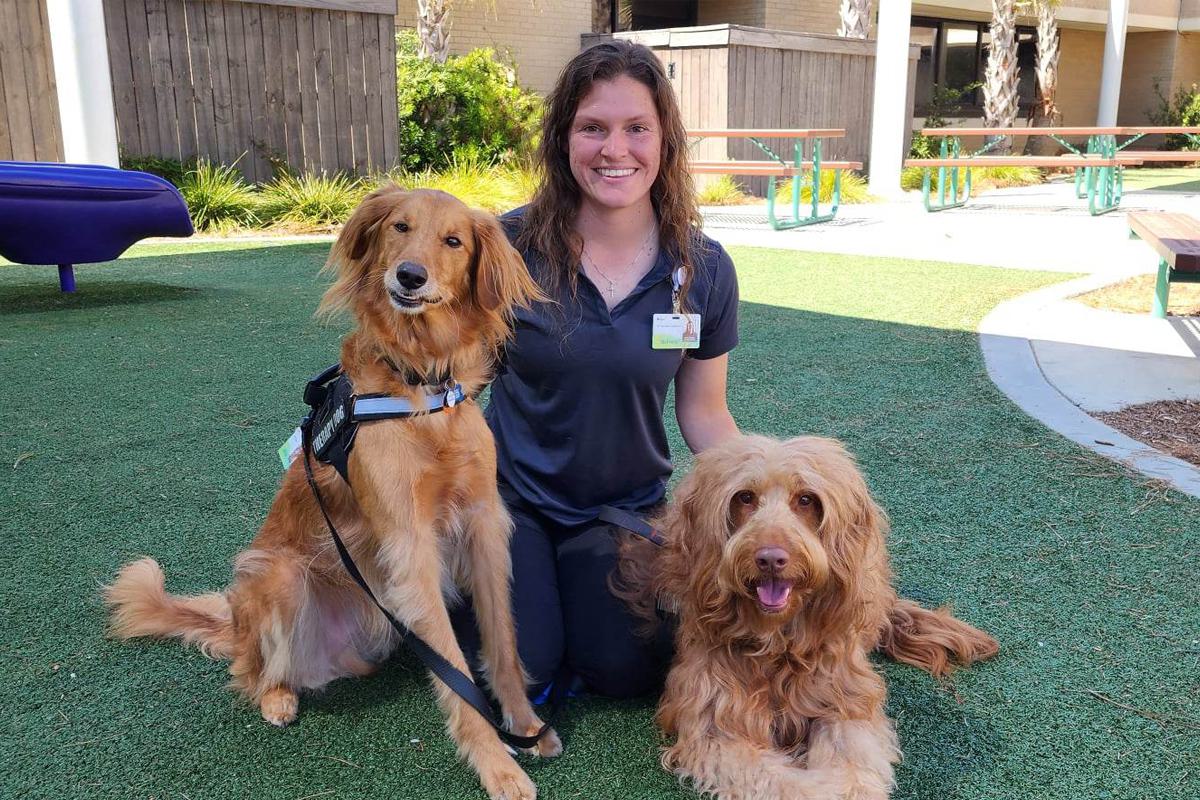A pet therapy program at BayPointe Hospital in Mobile is designed to help children in the programs there heal from mental challenges and crises. According to those in charge of the program, it is working.
Megan James, the recreational therapy coordinator at the facility, handles Zeke and Ollie, two certified therapy dogs. The Goldendoodles visit the school and hospital at BayPointe, as well as an adult hospital and the 988 Crisis Center.
After years of working with the dogs, James said she had seen a difference in the mindset of patients and students.
“Their purpose is to put smiles on everybody’s faces,” said James. “They help with anxiety, stress and give the kids comfort. A lot of the kids miss their dogs at home so when I introduce the dogs to them they love to see them.”
Zeke, a five-year-old, second-generation Goldendoodle, began training at just seven weeks old. He has been with BayPointe for three years.
Ollie, a first-generation Goldendoodle, began training at 11 weeks old and has been in the facility for a little over a year.

James said she started with Zeke and immediately knew she wanted to turn him into a therapy dog. After following guidelines from the American Kennel Club (AKC), she had him certified through the Alliance of Therapy Dogs organization.
The process went smoothly, and Zeke was a natural.
“It took a lot of trial and error and a lot of treats,” James remembered.
For Ollie, things were not as simple.
“Originally when I got Zeke, I got him and I said, ‘He’s going to be a therapy dog,” James explained. “That is not something you can make out of every dog and I kind of figured that out along the way. Like, Ollie is a little more stubborn. But when I got Zeke I dedicated to them, with my degree being recreational therapy, that we provide the support and motivation, communication and social skills through pet therapy.”
Now both dogs are on campus at the facility and have been working hard, James said. In fact, they both have their own ID badges at BayPointe.
Whenever the dogs are needed, James said they respond. She tries to focus on motivating the children and building communication skills.
“Hopefully it gives them the motivation they need to get back home and do what they need to do,” said James. “I also use them to show them that communicating to the dog compares to the kid relating to authority. They learn how to communicate authority then they are talking to the dogs.”
One case, in particular, was the case of a child who often showed anger when he was in a crisis. According to James, he threw things, put holes in walls, and cursed at staff. However, James said as soon as Zeke was brought into the room with the child, he immediately calmed down.
“He would just snap out of it,” James added. “He would just hug Zeke and they would lay on the ground together and he would just hug him. That is probably the best moment that I’ve had.”
James said Ollie had also responded to emotional children by laying beside them when they were in tears. She said seeing that display was why she wanted to bring pet therapy into the program at BayPointe.
“It is great to be able to calm them down without having to use medications and other types of things that aren’t as productive,” said James.
Staff at BayPointe said they also benefit from the dogs being on campus.

The dogs give them a break during long days and help comfort them after dealing with difficult situations.
“I think dogs are just very accepting,” said James. “ … With a dog, you get a little different emotion and it’s something most people know … I even have individuals who are scared of dogs but by the time they watch everybody in the group pet the dog, they’re like, ‘Okay, can I pet him? And eventually, they warm up to them, which is really cool to see.”
To connect with the author of this story or to comment, email erica.thomas@1819news.com.
Don’t miss out! Subscribe to our newsletter and get our top stories every weekday morning.






